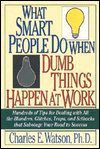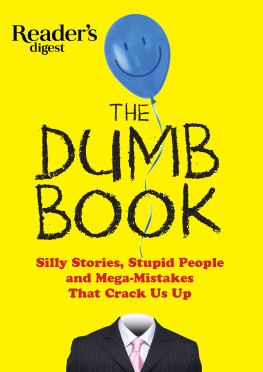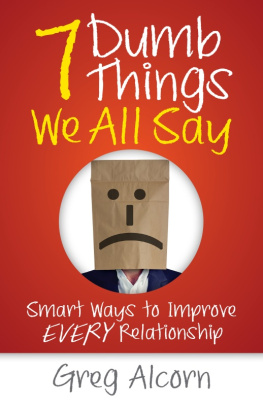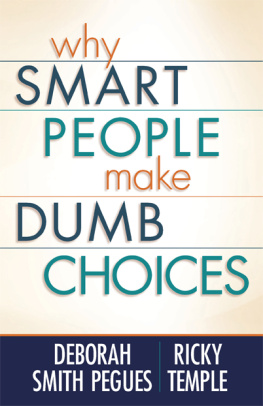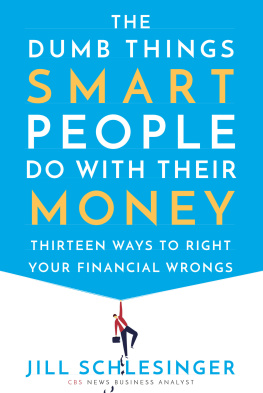Chapter 1
The Broken Compass
Reaching your destination by sticking to the best course |
E very day, in countless ways, good people get trapped or become hopelessly lost in the unpredictable and uncharted maze known as the workplace. They run head-long into troubles while others skillfully negotiate through everyday challenges to reach their destinations of success.
To keep on course and to avoid the snags and pits that can entrap or destroy anyone along the way, you need a reliable internal guidance systema compass that works, pointing out the best path around workplace difficulties and toward success.
The sad truth is that too many people never reach their destinations, because they try to navigate with broken compasses. A broken compass could be a warped sense of right and wrong, or disgraceful values, or self-serving purposes, or ignorance of performance expectations, or a poor sense of proportion. The list is long.
This chapter contains valuable lessons about the kind of compass that smart people use to achieve lasting success. It shows how smart achievers chart reliable courses that keep them moving forward on firm ground, where they travel safely around danger, leading to their desired destinations.
Dilemma 1
You are torn between taking a high-paying job that doesnt fully interest you and work that you love but doesnt pay all that well.
Tina discovered her love for science when she was a small girl. In school she devoured every science lesson and went on to earn a chemistry degree in college. Her first job involved laboratory work, a realm in which she knew she belonged and a place where she thrived. Tina did whatever her boss asked her to do and more. She loved her work so much that shed arrive early, stay past quitting time, and even work at her laboratory over weekends.
After a few years in her position, Tina grew restless, as the challenges of her job did not expand to keep pace with her knowledge. Unable to find challenges that suited her, Tina decided to return to college and pursue an advanced degree. While in graduate school Tina learned about a new technology. This emerging branch of science fascinated her and she wrote her masters thesis on a topic in the field. Her publications gave her national recognition and several firms quickly offered her promising employment opportunities when she graduated. She accepted a position with one firm that offered her a chance to pursue applied research believed to have commercial possibilities. Tina reveled in this position and she produced excellent results; her work provided her employer with highly profitable technological breakthroughs. In recognition of her excellent accomplishments, upper management decided to promote Tina to director of a laboratorya highly paid position with considerable responsibility and prestige.
In her new role Tina was in charge of the work of other researchers. It was the first time she had administrative duties: preparing work schedules, conducting performance evaluations, handling supervision matters, planning, etc. She spent less time in the laboratory and more time in her office doing paperwork, talking on the telephone, interacting with other people. And, too, there were those tedious meetingsTina hated meetings. She began to long for the days when she was where she felt most alive and challenged. The money and prestige didnt seem to be enough to compensate her for the lack of challenge she had enjoyed earlier in her career.
Unhappy and confused people stream in and out of the offices of psychologists and therapists every day, because they flatly refuse to accept the law of life that says we cannot always have everything we want. The well-worn expression have your cake and eat it too presents this truth vividly. Tina wants interesting and challenging work that she loves and she wants to advance in her organization and reap the benefits: better salary, prestige, power. She cannot have both.
All too often people make themselves miserable because they refuse to face the simple fact that they cannot have everything they desire. Day after day they create their own pain and misery because the pursuit of one desire makes the attainment of another desire impossible and they refuse to adjust themselves to that reality.
This is how Tinas compass is brokenit points toward mutually exclusive directions at the same time, thereby confusing her. Tina needs a compass that will point her toward just one direction, a direction thats worth moving toward.

Clarify what you seek. Decide the priority of your aims.
There was once a television commercial that showed a busy professional woman driving her young daughter home from school. She told her child, Ill be away for the next few days on a business trip. The child acted disappointed because her mother would not be able to attend her school play.
The mother tried to console her daughter, saying, You like all the things you have and our nice car and you want us to get a bigger house dont you? The child thought a moment and answered, Do we really need a bigger house?
The childs question was anything but childish. It was childlike in its penetrating honesty and it was extremely mature in terms of honestly facing the stark reality of having to choose between two mutually exclusive wants. This is what smart people dothey honestly face the reality of mutual exclusivity and clarify which aims they want more than others.

Choose doing over having.
Thomas Monaghan became a multimillionaire through building the Dominos Pizza chain. One day in 1980 he went to see Ray Kroc, the man who made McDonalds into the worlds largest chain of restaurants. Monaghan saw Kroc as an entrepreneurial genius and he tried to emulate him. While sitting in Mr. Krocs office, Kroc said to Monaghan, Tom, youve got it made now. So play it safe. Open a few stores every year, but dont make any deals that could get you into trouble.
Monaghan was shocked. He couldnt believe that the entrepreneur he so admired would say such a thingit defied what he thought Kroc believed in. Unable to restrain himself, Monaghan blurted out, But that wouldnt be any fun!
A long, silent pause gripped the room. Then, a big grin appeared on Krocs face as he jumped to his feet and walked around his desk to shake Monaghans hand. Thats just what I hoped youd say!
Red Adair, the man who made a name for himself by putting out oil field blazeshis firm was called on to extinguish the fires in Kuwait after the Iraqi army was beaten backwas no stranger to this important truth. He put it this way: Life isnt having it made; its getting it made. Each necessary task requires an effort of will, and with each act something in you grows and is strengthened.
@page { margin-bottom: 5.000000pt; margin-top: 5.000000pt; }
Smart Solution 1
Tina was fortunate that she received a taste of both laboratory work and supervisory responsibilities. She found out first-hand what kind of work each involved. She could make an informed choice, because the longer she remained confused as to which direction to take, the more frozen she could become, entrapped in the false hope that she could have both what she liked to do and the many extra goodies she wanted.
Hopefully, Tina didnt obligate herself to financial responsibilities or entangle herself in interpersonal relationships that would have prevented her return to the laboratory work she loved.
Dilemma 2
An opening for which you are well-qualified exists within your organization in another part of the country. The idea of advancement appeals to you, but the thought of moving away from familiar surroundings and friends bothers you.

